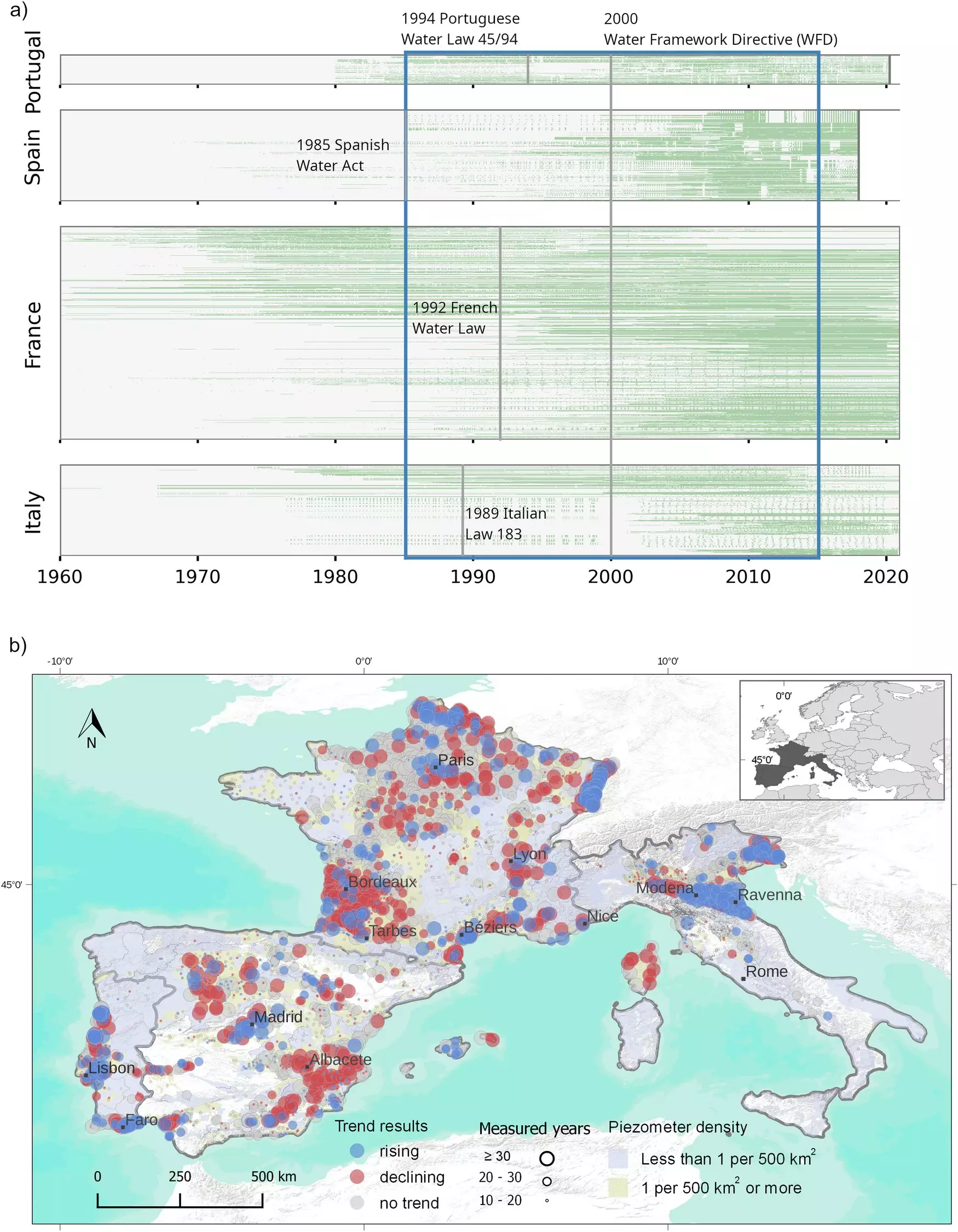Groundwater is an essential resource that sustains plants and ecosystems, supports agricultural production, and serves as a critical component of drinking water supplies. However, the challenges posed by climate change and human activities can threaten the availability of groundwater, especially in regions like southwestern Europe. A recent study published in Communications Earth & Environment by an international research team led by the Helmholtz Centre for Environmental Research (UFZ) sheds light on the state of groundwater in Portugal, Spain, France, and Italy.
The research team’s findings challenge the common belief that groundwater levels are declining uniformly across southwestern Europe. The study, which analyzed data from over 12,000 groundwater wells spanning six decades, revealed that 68% of the wells showed stable levels, while 20% exhibited rising levels and only 12% showed a decline. This nuanced picture highlights the need for a more detailed and localized approach to managing groundwater resources.
The study identified specific regions where groundwater levels are facing particular challenges. Semi-arid areas with intensive agriculture and frequent droughts, such as Tarbes in France and Medina del Campo in Spain, have experienced sustained declines in groundwater levels. These trends are exacerbated by reduced rainfall, higher temperatures due to climate change, and the significant water demands of agricultural activities. On the other hand, temperate regions with high precipitation rates, like northern France, have managed to maintain stable groundwater levels thanks to continuous recharge.
In addition to agricultural impacts, urbanization and industrial activities are contributing to the depletion of groundwater in southwestern Europe. Major metropolitan areas like Lyon, Nice, Modena, and Bordeaux have witnessed a decline in groundwater levels since the 1960s. In Bordeaux, for instance, rising domestic water consumption has put pressure on groundwater resources. Even popular tourist destinations like Béziers have seen declines in groundwater levels due to increased extraction to meet the needs of summer visitors.
Despite these challenges, the research team identified successful groundwater management approaches in certain regions. In La Mancha Oriental, Spain, for instance, a water user association was formed in response to declining groundwater levels caused by excessive irrigation. Through a combination of monitoring, remote sensing, and tailored water use plans, the region was able to reverse the negative trends and restore groundwater levels effectively. Such successful cases highlight the importance of stakeholder engagement and proactive management in preserving groundwater resources.
Southwestern Europe’s experiences with groundwater management offer valuable lessons for other regions facing similar challenges. As climate change intensifies and groundwater demand continues to rise, the need for sustainable management practices becomes increasingly urgent. By learning from the successes and failures of countries like Spain, France, and Italy, regions like Germany can develop anticipatory approaches to groundwater use and avoid potential pitfalls in the future. Collaborative efforts and knowledge sharing among nations can pave the way for a more sustainable water future.


Leave a Reply